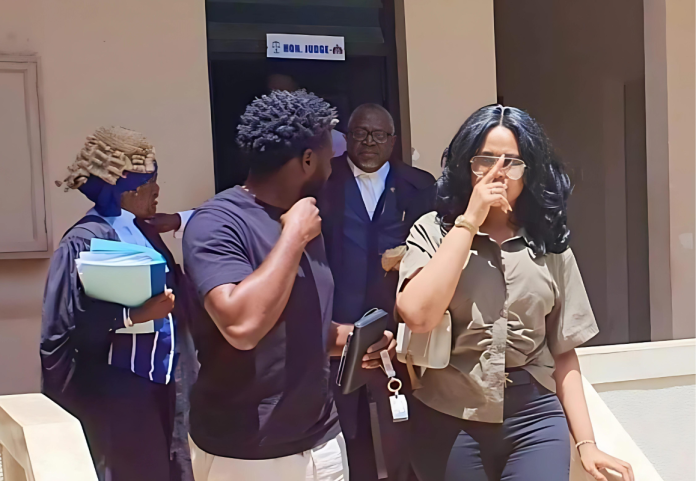By Kemeseng Sanneh (Kexx)
Justice Jaiteh ruled in favour of the defence counsel, ordering the witness to answer a question posed by Counsel L.S. Camara in the civil lawsuit involving Abdoulaye Thiam and Aisha Fatty.
Justice Ebrima Jaiteh’s ruling emerged from cross-examination, when Counsel Camara asked whether the witness declared the two gold jewellery he allegedly handover to Aisha Fatty with customs at the border, the witness Counsel Lamin Ceesay objected that the witness should not answer the question due to self-incrimination if the answer is positive.
Counsel L. A. Ceesay, representing Abdoulaye Thiam contended that the question posed by Counsel L. S. Camara whether the witness declared the alleged gold jewellery from the 1st Defendant to Aisha Fatty would potentially incriminate the witness and the court should reject the question.
In response, Counsel L. S. Camara argued that as the case pertained to a civil matter, the rules regarding self-incrimination in criminal cases should not apply in a civil case.
“The matter before the Court is not a criminal case but rather civil and the rule on self-incriminating in a criminal case is different in a civil case, the question is the public interest and tax implications,” Counsel Camara argued.
Justice Jaiteh referenced the long-standing legal principle of the privilege against self-incrimination, emphasizing its importance and historical precedence in English courts, citing section 165(c) of the Evidence Act, 1994.
Justice Jaiteh further indicates that the law on self-incrimination is now a settled principle of law in our jurisdiction and it is governed by section 178 of the Evidence Act, 1994 which outlines that a witness is not bound to answer a question if it could expose them or their spouse to criminal charges or penalties.
While acknowledging the exceptions outlined in subsections (a) and (b) of the Act, Justice Jaiteh determined that the witness must answer the question posed either yes or no and if the witness answers yes, then the Gambia Revenue Authority may become interested in the matter for tax purposes and may institute a suit to recover the tax.
Justice Jaiteh revealed that section 178 of the Evidence Act is not absolute, rather it has subjected itself to two provisions and the second provision does not excuse the witness from answering the question regardless of whether the witness will be liable to a civil suit by the State.
Section (b) read: “A person is not excused from answering a question only because the answer may establish or tend to establish that he or she owes a debt or is otherwise liable to a civil suit whether at the instance of the State or any other persons.”
Justice Jaiteh outlined that a person is not excused from answering a question only because the answer may establish or tend to establish that he or she owes a debt or is otherwise liable to a civil suit whether at the instance of the State or any other persons.
In conclusion, Justice Jaiteh ruled in favour of the defence, ordering the witness to respond to the question. In answering the question Mr. Bocar Dia, a Senegalese goods transporter answered that he didn’t declare the gold at the customs.
Counsel Lamin S. Camara in a follow-up question asked the witness if he had seen any document relating to gold, to which the witness stated that he had not seen any such document.
When questioned about his acquaintance with Omar Bella, who prepared the affidavit, the witness mentioned knowing one Jallow. When asked about Muhammed Jallow, the witness confirmed knowing him. He further elaborated that he knew Muhammed Jallow in Dakar, Senegal.
The witness was discharged after the cross-examination and the case was adjourned to 06th March 2024.
















